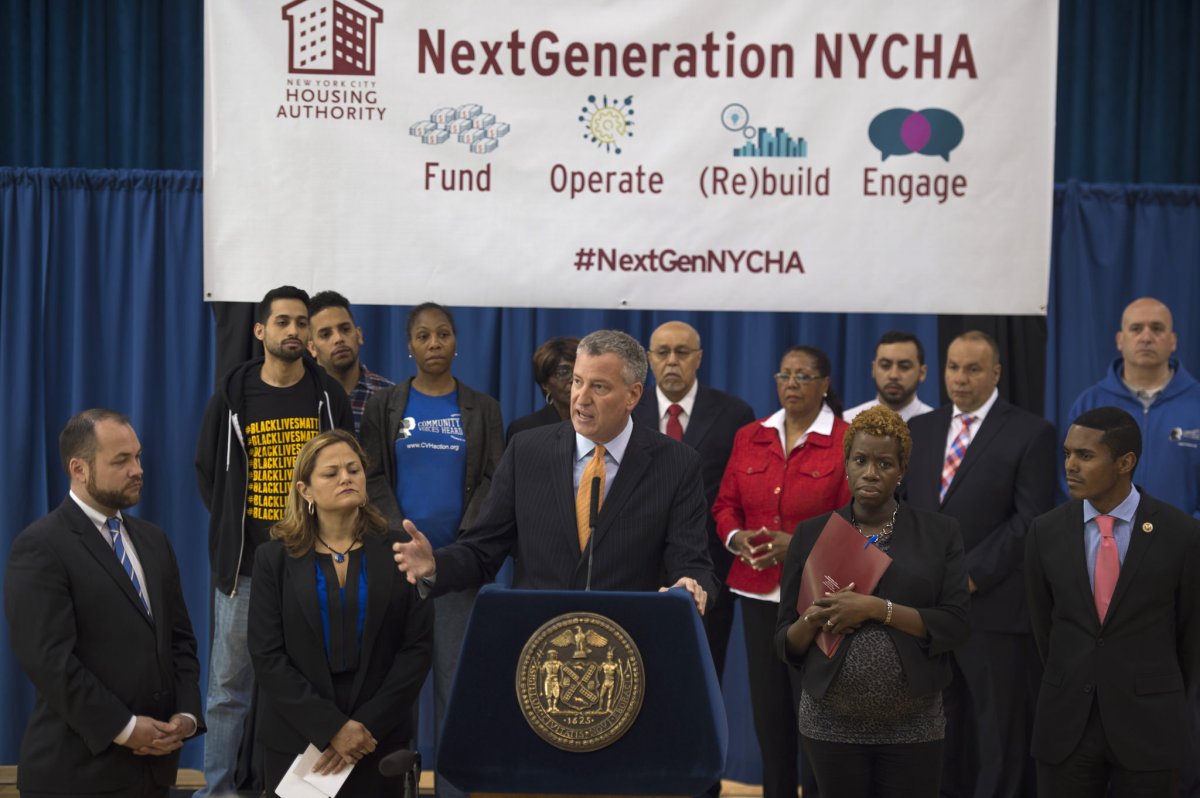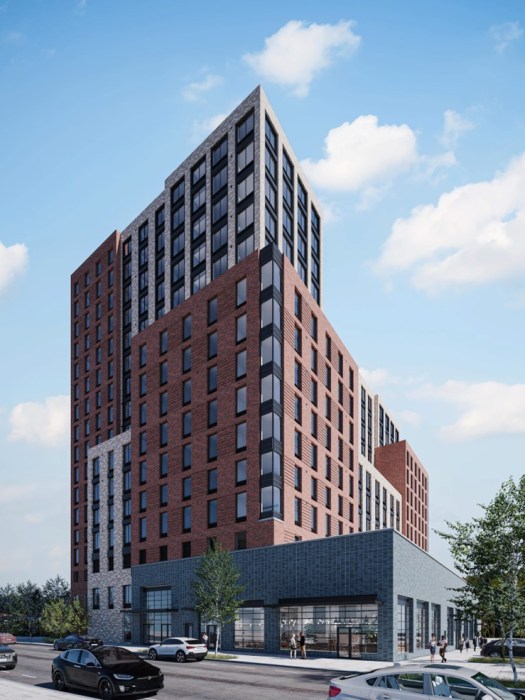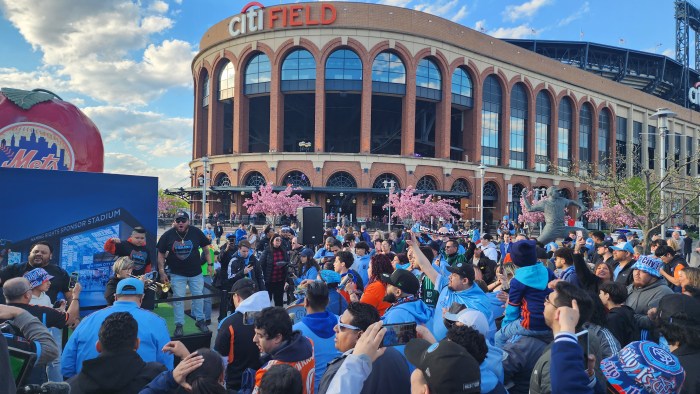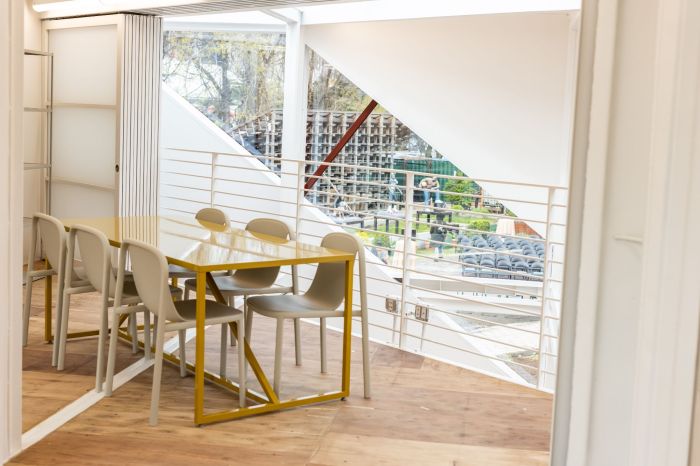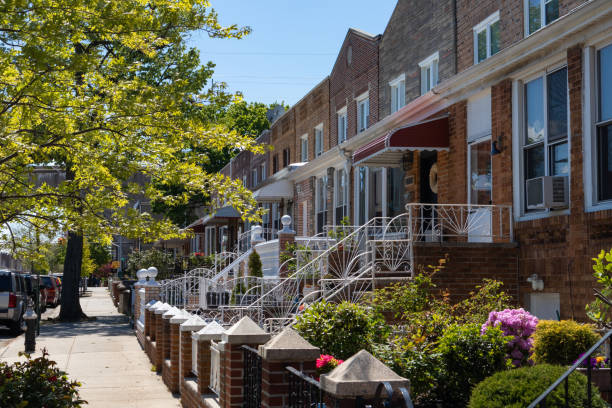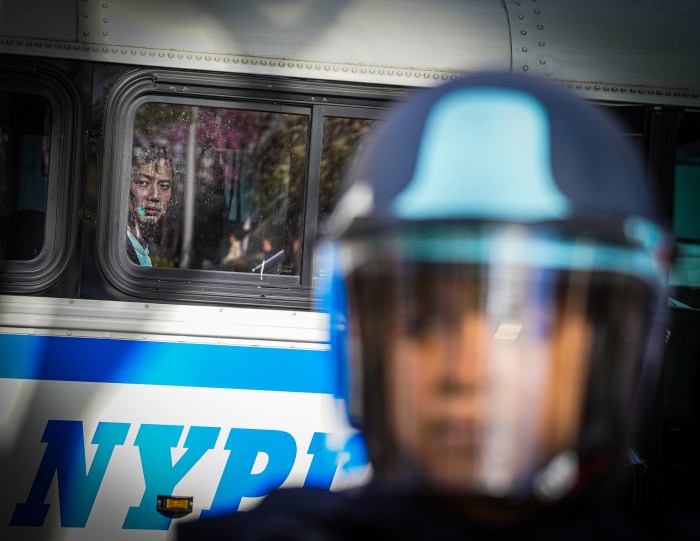Mayor Bill de Blasio announced a plan Tuesday to help revitalize public housing and fix financial problems of the New York City Housing Authority (NYCHA) by using the housing complexes more efficiently and reducing expenses.
The plan, NextGeneration NYCHA, involves various initiatives targeted to save the reeling city agency, which has only “one month remaining of surplus cash on hand and after that will go into deficit,” de Blasio said.
This includes leasing land in public housing complexes to developers to build more units, half of which must be used for affordable housing for families earning no more than 60 percent of the area’s median income, or about $46,600 annually for a family of three.
Also, 10,000 completely affordable units will be created in complexes in Brooklyn and the Bronx on underutilized, street-facing lots currently used for parking, trash or storage sites. These programs will cross over with de Blasio’s goal of creating 80,000 affordable housing units in 10 years.
“I believe that NYCHA began as a national model, and as a national model I believe it began as an idea that was so powerful because it was a place for hard-working people to find a decent home in the midst of an economic crisis,” de Blasio said. “Well today we find ourselves in a different kind of economic crisis for so many of our families and they need that decent home and they need it to be protected.”
After losing federal subsidies since 2001, NYCHA has ignored the need for repairs and renovations, and will need approximately $17 billion for repairs and capital expenditures in five years without the plan.
The city calculates NextGeneration NYCHA will generate annual operating surpluses of more than $230 million over 10 years for the city agency.
To cut expenses, the city will send about 1,000 central office NYCHA workers to other city agencies by 2018, so the housing authority can save $90 million.
In addition, starting in fiscal year 2015 the de Blasio administration and the City Council agreed to waive the $30 million in payments NYCHA gives the city each year— a fee that dates back to 1949.
Created in 1934 during the Great Depression under Mayor Fiorello La Guardia, NYCHA now has more than 403,000 residents in nearly 178,000 apartments around the five boroughs. The city agency has 22 developments and 17,126 apartments in Queens, including the Queensbridge Houses, which have the largest development in the borough with 3,142 apartments.
Also in the plan, NYCHA is hoping to do a better job at collecting rents. In 2014 NYCHA was owed more than $56 million in total back rent from prior years. The city agency currently collects about 74 percent of total rents each year, while there are about 54,000 families that are at least one month behind in payments.
The agency will also begin charging more for parking spaces. Currently they are about $300 a year, but will be up to $150 a month for tenants, who will be offered the spaces first. Unclaimed spaces will be offered to the public after.
Other upgrades to NYCHA will come with technology enhancements and customer service. There will be a new repair tracking system, where residents can go online a see the status of their repairs, and there will be a one-week deadline for basic repairs.
Also, in July, the agency will release its mobile app, MyNYCHA, where residents can, among other things, view, schedule and reschedule requests for maintenance service.
“We have got to have a better quality of life for our residents,” de Blasio said. “It’s long overdue.”
RECOMMENDED STORIES

